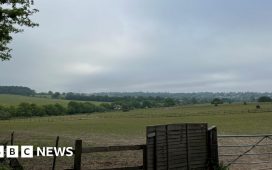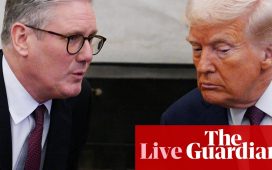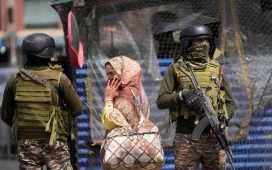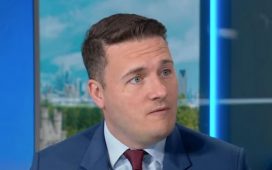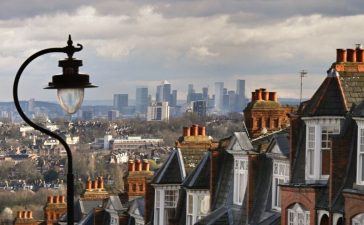Jeremy Corbyn has given his strongest hint yet that he will stand as an independent candidate, saying he has “no intention of stopping the fight” to represent his north London constituents.
The former party leader was on Tuesday formally blocked from standing for Labour at the next election, prompting leftwingers to fiercely criticise Keir Starmer’s “authoritarian” and “divisive” move.
Corbyn is unable to put himself forward for selection in his Islington North constituency Labour party (CLP), where he still has a solid support base, because the party’s national executive committee (NEC) signs off on all candidate lists.
He released a statement hours after the NEC backed Starmer’s motion to block him from standing as a party candidate, with 22 votes to 12.
“The NEC’s decision to block my candidacy for Islington North is a shameful attack on party democracy, party members and natural justice,” Corbyn said. “Now, more than ever, we should be offering a bold alternative to the government’s programme of poverty, division and repression. Keir Starmer has instead launched an assault on the rights of his own Labour members, breaking his pledge to build a united and democratic party that advances social, economic and climate justice.
“I will not be intimidated into silence. I have spent my life fighting for a fairer society on behalf of the people of Islington North, and I have no intention of stopping now.”
The Momentum founder, Jon Lansman, who was once one of Corbyn’s closest allies, said Starmer was “behaving like some kind of Putin of the Labour party” who had failed to fulfil his leadership promise of ending factionalism.
Corbyn was suspended from Labour in October 2020 for suggesting complaints of antisemitism had been “dramatically overstated” for political reasons. His membership was later reinstated but Starmer refused to restore the party whip, meaning he sits as an independent MP.
The NEC motion did not explicitly mention the issue of antisemitism. Instead, it said Labour’s electoral prospects in the seats it needed to win at the next election would be “significantly diminished” should Corbyn be a Labour candidate.
“We’ve got to recognise that the radical policies that we had under Jeremy Corbyn … were not the problem,” Lansman told Times Radio. “The party still supports them. I think we should be campaigning still for radical policy … We have to demand. We’re a democratic party. This is not an authoritarian party. Keir Starmer unfortunately is behaving as if he was some kind of Putin of the Labour party. That is not the way we do politics.”
The Islington North CLP has publicly rejected Starmer’s move to block Corbyn, saying north London voters “deserve a free and fair vote on who gets to represent them”. Many leftwing MPs have resorted to sharing the CLP’s statement, instead of outrightly condemning Starmer’s leadership.
A large number of leftwingers believe there is little point in “incriminating themselves” on broadcast media if they want to stay in the Labour party. “We’re not scared, but who wants to follow Corbyn out the door? We have constituents to represent here in parliament,” one leftwing MP said.
after newsletter promotion
Corbyn’s allies told the Guardian last month he was likely to run as an independent, with one friend saying he would do so once all the routes to the Labour nomination had been exhausted.
The former shadow chancellor John McDonnell said: “With [an] election in 18 months we need a united party to win a Labour government. This decision will be seen as divisive and brutal, victimising someone who has given his life to our movement. We need a campaign in CLPs and affiliates to reverse this decision.”
Nadia Whittome, the MP for Nottingham East, added: “It should be up to local members in Islington North to decide who represents them. The motion to ban Jeremy Corbyn from restanding is divisive, an attack on party democracy and a distraction from the vital task of getting the Tories out. I hope it’s withdrawn or rejected.”
Momentum called the decision an “anti-democratic stitch-up” and said Starmer had expressed support for the local membership selecting their candidates “for every election” while he was running to become Labour leader.

